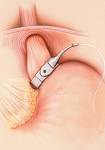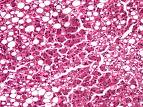Two stories must be told on fats and oils, not just one. Most of our confusion about the effects of fats and oils on health comes from knowing only half the story. Let me illustrate the double story on fats and oils by giving a few examples.
Some fats promote cancer; other fats inhibit cancer. Some fats inhibit immune function. Other fats are required for and enhance our immune system.
Some fats make us more susceptible to a stroke or a heart attack. Other fats protect us from heart attacks and strokes. Some fats lead to, and others reverse atherosclerosis. Some fats increase triglycerides (blood fats). Other fats lower blood fats. That's right! Fats can lower blood fats.
Some fats interfere with, while others are required for insulin function.
Some fats interfere with, while other fats are absolutely vital for brain development and brain function. And these fats are extremely important for the health of women, especially during pregnancies.
Some fats slow you down, but other fats increase your energy level.
Understand also that fats don't make you fat, and that the essential fats, used in the right ratio to one another, can be used very effectively for fat reduction and weight management. If you want to die sooner, you should also know which ones to pick. We want to treat everyone equally!
Western and affluent high fat diets contain the wrong fats for health. They lack some of the good fats, contain too much of the unnecessary fats, and are destructively processed, changing some of their molecules into toxic ones. Such fats increase cardiovascular disease, cancer, diabetes, multiple sclerosis, arthritis, premenstrual syndrome, and other degenerative diseases.
The low fat (no fat) diet that is the rage today leads to stunted growth in children; dry skin; low energy levels; high cholesterol; high triglycerides; compromised immune function; leaky gut and allergies; lower testosterone production; and, as you will see a little later, cause many other health problems.
Low fat foods taste like cardboard (fats enhance taste), and they deprive many people of great tasting foods. Manufacturers deal with this problem in a rather interesting way. They load low fat foods with sugar, which your body turns into the hard (saturated) fats they claim to be avoiding by making these low fat foods in the first place. What a ridiculous idea! What a bad joke for health!
What we need is not a high fat, low fat, no fat, or fake fat diet.
We need the Right Fat Diet.












